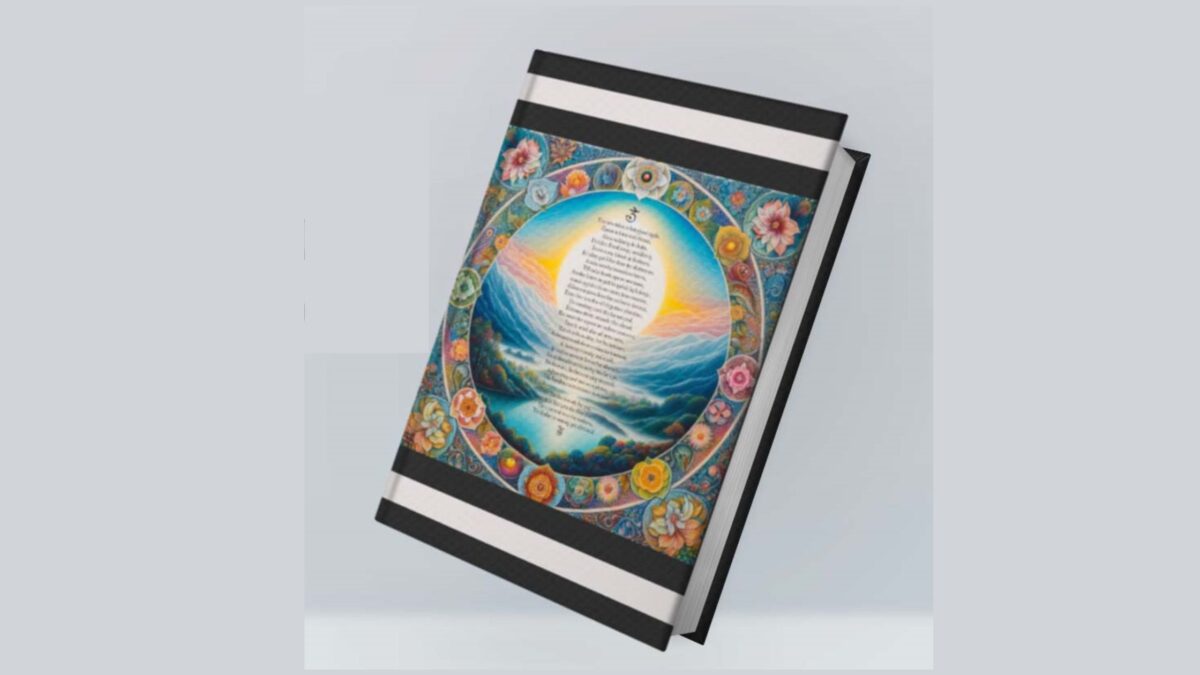The Healing Power of Words: An Insight into Spiritual Poetry

Spiritual poetry is a profound and transformative genre that transcends ordinary expression, connecting deeply with the human soul. Through its rich language and evocative imagery, it provides solace, inspiration, and a sense of spiritual awakening. We’ve shared some unique qualities of spiritual poetry and how it serves as a powerful tool for healing and personal growth.
The Essence of Spiritual Poetry
At its core, spiritual poetry delves into themes of the divine, the soul, and the mysteries of existence. It often draws from various religious and philosophical traditions, weaving together universal truths and personal insights. This genre encourages readers to reflect on their own spiritual journeys and find meaning beyond the material world.
Therapeutic Effects of Spiritual Poetry
The rhythmic flow and profound messages help calm the mind, reduce stress, and provide comfort during difficult times. By reading or writing spiritual poetry, individuals can process emotions, gain new perspectives, and find a sense of peace.
Symbolism and Imagery
Poets use these literary devices to convey complex ideas and emotions. For example, a poem about a rising sun might symbolize hope and renewal, while a flowing river could represent the passage of time and the journey of life. These elements enrich the reader’s experience, allowing them to interpret and internalize the poem’s deeper meanings.
Contributions of Renowned Spiritual Poets
Many renowned poets have made significant contributions to spiritual poetry. Rumi, the 13th-century Persian poet, is celebrated for his mystical verses that explore love and union with the divine. His work continues to inspire readers with its timeless wisdom. Similarly, poets like William Blake, Emily Dickinson, and Rabindranath Tagore have explored spiritual themes, leaving a lasting impact on literature.
Personal Reflection and Introspection
Writing spiritual poetry often involves deep introspection and reflection. Poets tap into their inner selves, exploring personal experiences and spiritual beliefs. This process can be therapeutic, allowing writers to express their emotions and thoughts in a meaningful way. Aspiring poets are encouraged to meditate, reflect, and connect with their spiritual side to create authentic and impactful poetry.
The Role of Nature in Spiritual Poetry
Many poets find the natural world to be a reflection of the divine, using its beauty and tranquility to convey spiritual themes. Descriptions of mountains, rivers, and forests often symbolize purity, strength, and the eternal flow of life. This connection to nature helps readers feel grounded and connected to something greater than themselves.
The Accessibility of Spiritual Poetry
Online platforms and social media allow poets to share their work about spiritual psychotherapy with a global audience, creating communities where individuals can find solace and inspiration. This accessibility helps spread the healing power of spiritual poetry, making it a valuable resource for those seeking spiritual growth and connection.
Modern Spiritual Poetry
Contemporary spiritual poetry continues to evolve, addressing modern themes and challenges. Poets today explore issues like mental health, social justice, and environmentalism through a spiritual lens. This modern approach ensures that spiritual poetry remains relevant and resonates with a diverse audience, offering insights and comfort in an ever-changing world.
How to Appreciate Spiritual Poetry
To fully appreciate spiritual poetry, it’s essential to engage with the text on a deeper level. Reading aloud can help capture the rhythm and emotion of the poem. Reflecting on the imagery and symbolism allows readers to uncover the layers of meaning within the verses. Personal interpretation is key, as spiritual poetry often speaks to the individual experience, offering unique insights and revelations.
Creating a Spiritual Poetry Practice
For those interested in exploring spiritual poetry and psychology books, establishing a regular practice can be beneficial. Setting aside time for reading and writing poetry can foster a deeper connection with oneself and the divine. Keeping a journal of reflections and inspirations can also help nurture this creative and spiritual journey.
Conclusion: The Timeless Appeal of Spiritual Poetry
Spiritual poetry, with its profound messages and therapeutic effects, remains a timeless and powerful genre. It offers a path to self-discovery, healing, and spiritual awakening, connecting readers to the divine and to each other. As we navigate the complexities of modern life, the healing power of spiritual poetry continues to provide solace, inspiration, and a deeper understanding of the world and our place within it.






